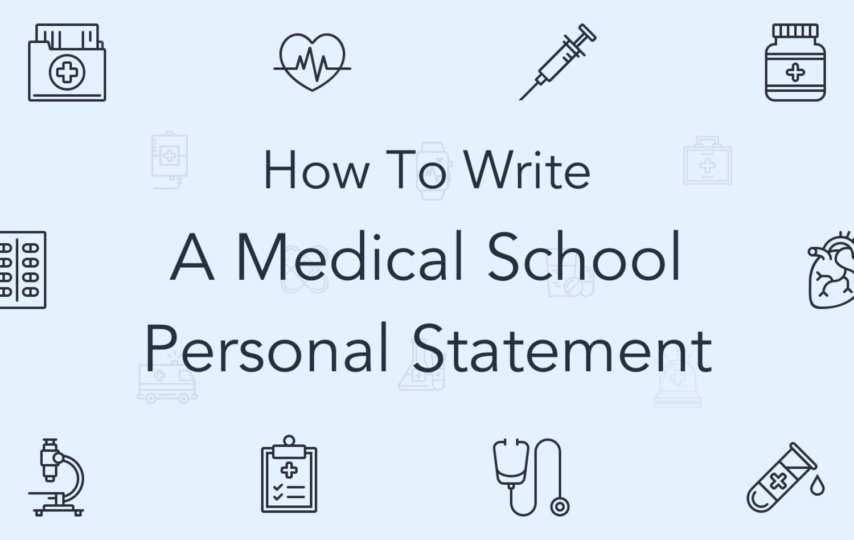See your medical school personal statement as an opportunity to present an impressive snapshot of you. Your personal statement tells who you are and why you want to be a doctor. Writing a personal statement is a tricky subject. The selection committee should get a sense of your personality from your personal statement. It must be professional and focused.
While writing your personal statement, try to say what drives you to be a physician. It has to be very specific. A more specific and authentic personal statement can increase your chances of getting into a medical school. Pre-med students often don’t realize how important their medical school personal statement is when thinking about their preparation for med school.
You don’t need any artificial drama or gimmicks to express why you will be a good student in the class and good healthcare professional during your practice. You simply need to be careful while selecting details that will help in crafting a unique and compelling story. The admission committee should be able to find a sense of purpose and motivation.
A Good Medical School Personal Statement
- You can find a lot of personal statement examples on the web. However, keep in mind that your personal statement has to be unique and specific. So, don’t look for an effective personal statement template. A good statement contains a concise description of personal experience. It should reflect the character and commitment required in the healthcare profession.
- While it can have a sense of narrative, don’t make it a short story. You can relate a few anecdotes and scenes from your life to convey your dedication to medicine.
Personal Statement Writing Process
Don’t see the following as rules. They are potential strategies as not all candidates write the same.
- List your most defining experiences including research, volunteer work, hobbies, specific classes, extracurricular activities and so on. Avoid illness in the family, trouble with parents, breakups and other overly personal experiences.
- Make sure that the list contains experiences that reflect your dedication to service, intellectual curiosity, leadership ability, composure under pressure and other personal traits. All these traits should reflect your ability to be a good medical student and a good doctor.
- Start with a draft specifically based on these experiences. Use this draft to demonstrate your character and motivations.
- Revisit the draft after a week with fresh eyes. Identify what works in the draft and what does not.
- Revise again and again to make the draft more clear by adding new details. Remove unnecessary sentences or sections. Use active voice.
- Get feedback from trusted readers. Revise the draft according to their useful suggestions. Keep in mind that getting feedback from too many readers can be overwhelming.
- Proofread and remove typos, grammatical mistakes, clumsy repetitions, poorly structured sentences and so on.
Getting Started
Consider the following questions while writing your medical school personal statement:
- Who are you?
- What are your passions, interests or concerns?
- How did you develop your passion or interests?
- What did you learn from your mistakes and regrets?
- What books, events, courses or ideas have had an impact on you?
- How does your commitment reflect your values?
- What are the changes you have gone through?
- How do you link your interests and your goals as a medical student and as a doctor?
Do’s
- Use experiences that describe your personal progress towards your commitment to medicine.
- Sound confident and humble.
- Use active voice.
- Be concise.
Don’ts
- Avoid using hyperbolic terms to describe your passion. All candidates make the same statement. Use your experience to indicate your passion.
- Avoid using sentimental or overly confessional tone. Your personal statement should sound professional.
- Don’t see your personal statement as a piece of creative writing.
- Don’t see it as your resume.
- Avoid slang, abbreviations, jargon and so on.
- Avoid using too many qualifiers.
- Avoid using language that you normally don’t use.
- Avoid including famous quotations.
- Don’t write your personal statement in an overly glorifying manner.
Remember
- The reader is most likely to be a non-specialist. So, write your medical school personal statement accordingly.
- Instead of describing your experience, give examples as actions speak louder than words.
- The statement must contain accurate information.
- Use your personal statement to demonstrate your writing and communication skills.
While you should write your personal statement on your own, you can also hire a medical school personal statement editor to make your personal statement more compelling.











